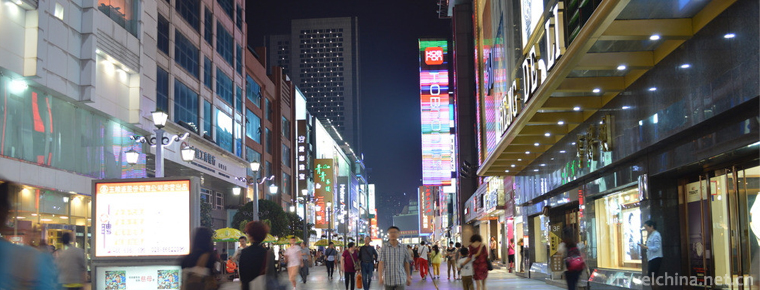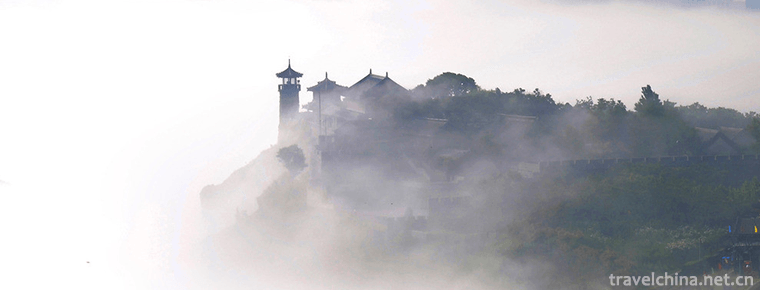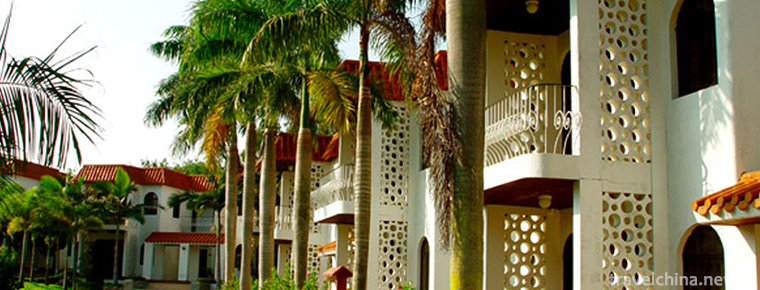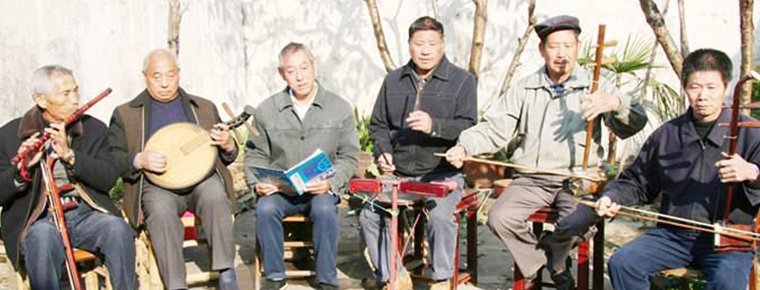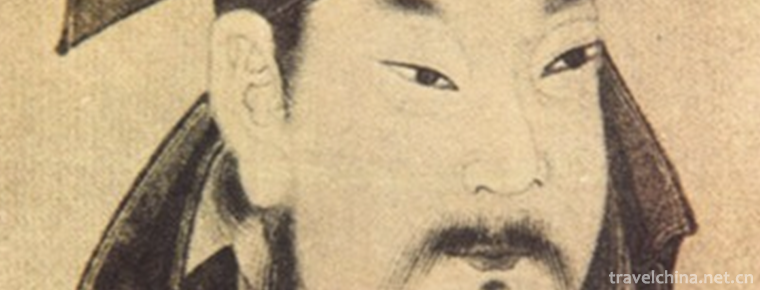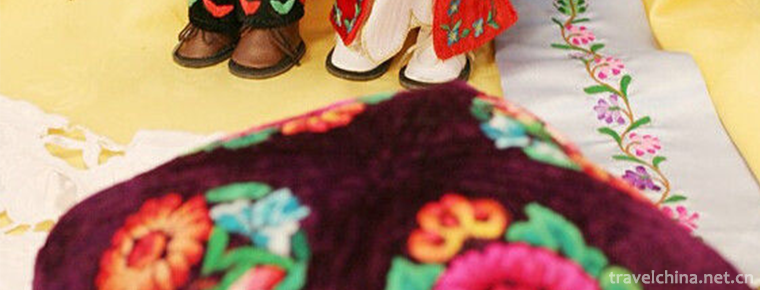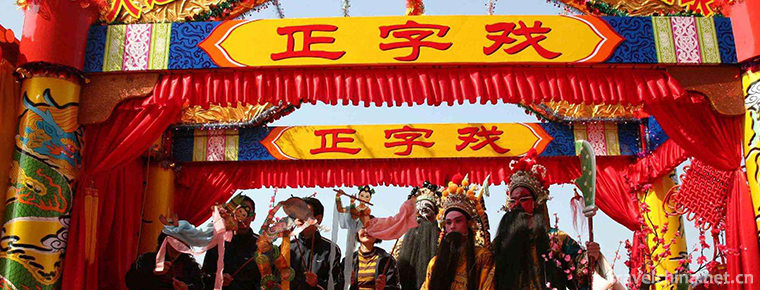Lotus fall lian hua lao
Lotus fall
Lotus Flower is a kind of traditional folk art with both rap and singing. The performers are mostly one person, self-talk and self-sing, self-play seven pieces of accompaniment.
"The bamboo dragon is also for the water dragon boat, fighting for the odd and bright colors, laughing at the master of the East King of Shashi City, and listening to the people singing together to leave the lotus." Fu Zhengsheng opened the Tongzhi edition of Xingan County Chronicle in the Qing Dynasty, read the poem aloud and told reporters that the "falling away from the lotus" in the poem is "falling from the lotus". The County Chronicle also records that Xingan's "Lotus Flower Fall" can be traced back to the Song Dynasty, in the form of the Ming Dynasty flourishing in the Qing Dynasty. Fu Zhengsheng said that in fact, "Lotus Fall" has been circulating throughout the country since ancient times, and the northern "two biographies" evolved from "Lotus Fall".
Since the late Qing Dynasty, Xingan's "Lotus Flower Fall" has been widely spread, with the emergence of professional blind artists who specialize in singing operatic narrative "Lotus Flower Fall" and singing folk stories. In addition, more than 20 major blind artists, such as Chen Liantian (also known as Chen Jizi), from Songxi Village, Shenzhengqiao Township, are also very active and have excellent acting skills. Xingan "Lianhua Luo" takes "Quyi Tune" and "Quyi Crying Tune" as its main melodies, while absorbing folk minor tunes, tea-picking opera music, euphemistic, fluent, narrative, suitable for lyric, and with dialect to sing, plus beating chest, stomach, arms, legs, easy to understand, lively and interesting, attractive, especially by the masses. Its traditional repertoire includes "Tianbao Tu", "Ribbon Records", "Robapo" and so on. After the founding of the People's Republic, the main songs created and sung are "Tiger Village", "Liu Erwa", "Blood and Tears Enmity" and so on.
On May 23, 2011, Lotus Flower was approved by the State Council to be included in the third batch of national intangible cultural heritage list.
Historical allusions
Fu Zhengsheng was the vice-director of the Xingan County Cultural Library of Jiangxi Province. He is a member of the Chinese Library Society and the Jiangxi Mass Cultural Society. Talking about "Lianhua Fall" in Xingan, this 38-year-old man who has been engaged in cultural work has always been full of emotion.
What is "Lotus Fall"? Fu Zhengsheng found a branch with some red paper on it and said it while shaking. In fact, "Lotus Fall" is a local play called "blind man". Historically, it is a play sung by blind beggars. Its main content is to exhort the world, praise the good and punish the evil, retribution for cause and effect, pray for alms and praise for good luck. Because the blind worship Buddha, and lotus is a symbol of Buddhism, the blind sing mostly two people together, singing a gang, each holding a evergreen branch, covered with many red paper flowers, for the "lotus" shape, between branches with a string of money, for shaking, "wordy, wordy" sound, help beat, so the name "lotus falls", also known as the lotus or money shaking tree. Over time, people only knew the blind opera and forgot the original name of the opera "Lotus Blossom". In order to avoid blind people, people who are more gentle are renamed photon play. Therefore, "Lotus Flower" has the name of "photon play".
Main characteristics
Lotus blossoms are popular in Beijing, Tianjin, Hebei and other places. A lotus music originated from the "scattered flower music" in the Tang and Five Dynasties. It was the earliest warning song to propagate Buddhist doctrine when monks were recruited. The Song Dynasty began to be popular among the people. After the Qianlong reign of the Qing Dynasty, professional artists appeared, and many fans of the Manchu Eight Banners'children joined with another popular folk art form, Ten Free Flowers, which became one of the folk flower fairs, called "Ten Free Lotus Falls", or "Ten Free Lotus Falls". The content is mostly the folk songs of landscape lyricism and folk stories. During the performance, all the staff will first beat the percussion instruments, do dance movements, sing the tunes of "Four Happiness", "Eight Palms" and "shelf tune" as the prelude, and then sing the lotus falls program.
There are two forms of performance: singing and colour singing. One singer sings a story, and the lyrics are narrative style. Colourful singing is composed of two or three singers, who play two roles: Dan and ugly.
Lotus flower falls in the folk, because the singer's identity and singing form are different and there are factions. All the organizations sung by children and fans are called "Qingmen", while the class clubs of professional artists are called "Hunmen". These two schools are also collectively called "small mouth lotus flower falls" to distinguish them from "big mouth falls" or "big board falls" sung by beggars.
The tune of Lotus Flower is relatively simple, with only the upper and lower sentences. Commonly used plate eyes are "slow three eyes", "stacking plate", "scattered plate" and so on. The tone can be divided into "flat tone" and "sad tone". In addition, there are some special tunes such as "crying willow", "turning clouds over", "fishing for the moon at the bottom of the sea". Usually when a aria begins, there must be a "wrestling" or "shouting out". At the end of Qing Dynasty and the beginning of Republic of China, famous artists of Lotus Flower Fall included Jia Bi Zhao and Kui Xingyuan.
Form of performance
Lianhualuo is a traditional folk art with both rap and singing. The performers are mostly one person, self-talk and self-sing, self-play seven pieces of accompaniment. The so-called seven pieces are bamboo boards with two hands, because they hold two big boards with their right hand and five small ones with their left hand. Big bamboo boards and small bamboo boards play with each other, and the words of rap and singing are performed with the rhythm of the board. Therefore, it is commonly called "seven pieces".
As for Lianhua Fall's rap lyrics, they are basically composed of seven dialects and four sentences, all in Taiyuan dialect. When performing, first buckle the big bamboo board, match the small bamboo board, after three rounds of beating the board, start to rap, mainly to sing, between whitewash, while singing, cadence, a little long tail, quite in line with the local taste. The traditional repertoire of the lotus blossom in Taiyuan is mostly a popular historical story and a traditional folklore familiar to the local people. Long stories include "Five Girls Xing Tang Biography", "Wanhua Tower" and "Huyanqing Fighting". Short stories include "Little Two Fighting", "Little Widow Up to New Cemetery" and "Husband and wife Geshui" and so on.
Nowadays, Lotus Blossom not only has seven accompaniments, but also develops to string and percussion instruments. The main instruments are three strings, dulcimer, erhu, wooden fish, etc. At that time, Lotus Fall did not pay much attention to performance, just talking and singing. It was decided by the form of street performances in its early years. Since liberation moved to the stage, it has focused on body and movement performance, which is different from the past.
artistic form
The artist named Zhang, who is nicknamed "long fingernail", came to Shaoxing from his hometown "Xia Sanfu" (present-day Hangzhou-Jiahu area) to sell and sing, and settled there. He was successively apprenticed to Shen Afa of Yusong Xiamen and Tang Maosheng of Potang, Shaoxing. At that time, there was no fixed content and no fixed tone in singing. At the beginning of the Republic of China, Tang Maosheng was influenced by Yueju Opera's Xerox tune and Xuanjuan tune, and began to use tuning method to create a basic set of singing tunes. The form of performance was also changed from selling and singing along the street to performing on the stage. The content of the performance is mostly short lyrics reflecting rural family life, commonly known as "festival poems", such as "Madam's Day Poems", "Daughter-in-law's Day Poems", "Family Separation Poems", "Seeing Phrase Poems", "Baibug Festival Poems" and "Advising Fujie Poems", but more than ten. Afterwards, the artist deeply felt that it was laborious, monotonous and inconvenient to sing a long book catalogue in the tune, so he began to accompany with four-hu, and added the festival of drums, bamboo boards and three-warped boards. When singing, one person pulls four hus, one person hits drums and beats a board. The singer holds three warping boards and smartly strikes through the door with the music, which has been used up to now.
Before the founding of the People's Republic of China, Shaoxing Lotus Flowers mostly performed in rural or urban teahouses. The audience, mostly farmers and tinfoil workers, is regarded as vulgar. After the founding of the People's Republic of China, the relevant departments organized teams for artists to help sort out bibliographies and make lotus flowers flourish day by day. In 1959, artist Wang Jinfu participated for the first time in Zhejiang Quyi Tune with Lianhualuo in Shaoxing, performing a section of "complaining" in the traditional bibliography "Naoji Mountain", and was awarded the first prize. In 1964, the artist Ding Shuitang also participated in Zhejiang modern opera performance with the modern program "Two Sheep" and won high praise.
In recent years, Lianhualuo performance, singing and music have developed greatly. In accompaniment, pipa, dulcimer, erhu and flute are sometimes added. Its bibliography is also becoming more and more abundant. The recordings of "Blood and Tears" adapted from Shao Opera have become the reserved programs of Zhejiang People's Radio. In 1982, Hu Zhaohai performed in the National Quyi (Southern Film) Performance and won the first prize in creation, music and performance. Later, he was selected as one of the national excellent repertoires and participated in the performance troupe organized by the Ministry of Culture. He toured 12 provinces, cities and autonomous regions such as Inner Mongolia, Xinjiang and Qinghai. In 1986, in the Zhejiang New Songs (Bibliography) Competition, Ni Qiquan performed "Mad Girl" and won the first prize of creation, performance, composition and accompaniment. Since 1985, Shaoxing has also held three consecutive lotus falls in Shaoxing Province. The county has more than 30 professional actors and 50 amateur actors.
Endangered situation
The lotus flower is on the verge of being lost. As far as Beijing's music circle is concerned, the real singer is very rare.
It's been playing tickets for years. He participated in the box office event held by Deshunxing Restaurant and had the honor of meeting Mr. Xu Junjie, an old lotus ticket friend. According to Mr. Xu, Jingwei Teahouse has been singing many times when standing in a row on the East Street of Liulichang. Unfortunately, I missed the chance of meeting because I went too few times.
It is not excessive to call Mr. Xu Junjie the only remaining lotus fallen singer with fruitful achievements.
There are two reasons why I am interested in lotus flower falls. One is that I heard lotus flower falls several times at the Temple Fair of Protecting the Nation in 1954. My impression is that the lotus flower falls are interesting and the singing tone has a unique charm. Secondly, since I like the art of folk music, I naturally care about it.
Mr. Xu Junjie (now over the age of antiquity) was very popular in the academic period of that year. In his childhood (when he was 89 years old), he often went to the Baita Temple Fair to hear Mr. Baiyushan, the ancestor of Lotus Falling. The more you listen, the more addicted you become. By looking for a way, Mr. Dong Guobi, who was introduced by "Learning for Taoism", entered the "Learning for Taoism - Tianping Holy Club", followed Mr. Dong Guoliang, a teacher, to learn and perform while learning, and often went astray.
There is a key figure in the decline of lotus blossoms, because success and defeat are both weak and weak. (This theory can not be said to be precise, but it is also true that the relationship is great.) This man was Guan Dejun, one of the Eight Monsters of the Flyover. This Mr. Guan led Guan Jinfeng, Guan Yinfeng and Jinfeng Pool to perform Lotus Fall. Here comes a surprising victory, playing "live donkey", vivid and vivid, they sang the "live donkey" lotus. But the "live donkey" kicked the other lotus fallen artists'rice bowls to pieces. There are fewer and fewer visitors to other Lotus Fall Artists'Stadiums. Other artists can't earn enough money to support their families. They can also hang up a tree, retire and change careers. Everyone wants his own tricks. Until before and after the liberation of Beijing, except for the "live donkey lotus drop", other lotus drop artists disappeared. There are only two or three lotus blossoms at the box office in the capital city, which are still supporting the folk rap and singing art.
In 1954, an old artist came out of the mountain to perform at a temple fair. Later, a lady was added to the performance. It is said that it may be Mr. Jia Yushan and Ms. Jia Yujuan. Whether business is good or bad, there are still "aftertones" in the lotus blossom.
The Cultural Revolution upheaval and ten years of catastrophe swept away the lotus flower in the market completely.
In 1980, Mr. Liu Changlian came back and organized the Holy Church of Old Tongle Balance. The lotus flower falls just like the unearthed cultural relics, showing for several years. As there is no successor, the old ticket-holder, though living long, will eventually have to go westward. The old man Tongle can be called the last sacred congregation of lotus blossoms. It has been six or seven years since the dissolution of the old bookmaker's "westward travel".
To excavate a certain national art, the key is to see whether it is of value or not. Lotus Flower's performance style is very similar to the two-person turn in Northeast China. People in the Northeast said, "Better have a meal than a duet." The decline of lotus flowers does not mean that they are useless.
The performance of Lotus Flower is singing and dancing, which is dynamic and visible. Lotus Flower's colorful singing and make-up show are interesting and unique.
Digging lotus blossoms is really very difficult. The first is learning or inheritance. Fortunately, Mr. Xu Lao is still alive. He still has a door to seek teachers, but he has to make painstaking efforts. I don't know if there are people with lofty ideals who are willing to fight. Another is innovation, which is more difficult. Any art is backward if it does not advance, and "advance" means innovation. Others "live donkey race" belongs to dare to think, dare to do, dare to innovate, so he can be extremely popular for a time, dominate.
Accession
In 2010, Lianhualuo, Taiyuan City, Shanxi Province, was selected as the third batch of national intangible cultural heritage, Quyi item category, serial number 1.
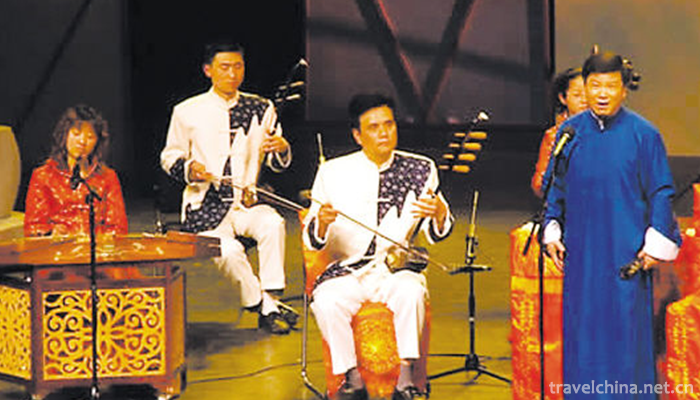
Lotus fall lian hua lao
-
Chunxi Road
Jinjiang District Chunxi Road street, Chengdu, Sichuan, China
Views: 116 Time 2018-10-02 -
Penglaige tourist area
Penglaige Scenic Area, located in Danya Mountain, northwest of Penglai City, Shandong Province, is a national AAAAA-level tourist attraction with an area of 18,500 square meters
Views: 119 Time 2018-12-08 -
Blue Moon Bay Hot Spring Resort
Lanyuewan Hot Spring Resort is the largest four-star garden-style foreign-related hotel and national AAAA-level tourist scenic spot in Western Guangdong. It is located in the quiet "Guangzhou Bay
Views: 203 Time 2019-01-29 -
Wu Songgun Taiwan Wetland Forest Park
Wu Song Gu Taiwan Wetland Forest Park: Wu Song Gu Taiwan Wetland Forest Park with a total area of 53.46 hectares is located in the eastern part of Baoshan District
Views: 214 Time 2019-02-22 -
Lanxi stall spring
Lanxi Spring Spring Spring Spring is an ancient form of sitting and singing art, which was formed and popular in Lanxi area in the Midwest of Zhejiang Province, Jinhua and Quzhou, and belongs to Nanci
Views: 163 Time 2019-05-10 -
Construction Techniques of Tujia Diaojiao Building
Tujia hanging-feet building construction skills, Hubei Xianfeng County, Hunan Yongshun County, Chongqing Shizhu Tujia Autonomous County, local traditional skills, one of the national intangible cultur
Views: 159 Time 2019-06-23 -
Legend of Wang Xizhi
Wang Xizhi's legend is a local folklore in Shaoxing City, Zhejiang Province. Wang Xizhi has few words. Jin Dynasty, one of the most famous calligraphers in China, once served as a general of the Right
Views: 244 Time 2019-06-26 -
Uygur Embroidery
Embroidery is one of the most representative decorative techniques in Uygur costumes in China. Whether it is Uygur clothes, skirts, shoes, hats and beds, the interior decorative articles adorn the exq
Views: 193 Time 2019-06-26 -
Orthographic drama
Zhengzi opera, originally known as Zhengyin opera, is singing in Zhongzhou Mandarin. It is an ancient and rare opera with many voices. In the early Ming Dynasty, one of the Southern Opera was introduc
Views: 135 Time 2019-07-25 -
Anhui University Of Traditional Chinese Medicine
Anhui University of Chinese Medicine is located in Anhui. Jiangnan Labial teeth, Huai right A famous historical and cultural city called "the throat". Hefei For Anhui higher education revita
Views: 161 Time 2019-11-07 -
Social undertakings in Luzhou
As of the end of 2018, Luzhou has added 1 provincial key laboratory, 1 provincial engineering technology research center, 4 incubators of science and technology enterprises above the provincial level, and 16 national high-tech enterprises. The annual output value of high-tech reached 38
Views: 369 Time 2020-12-14
